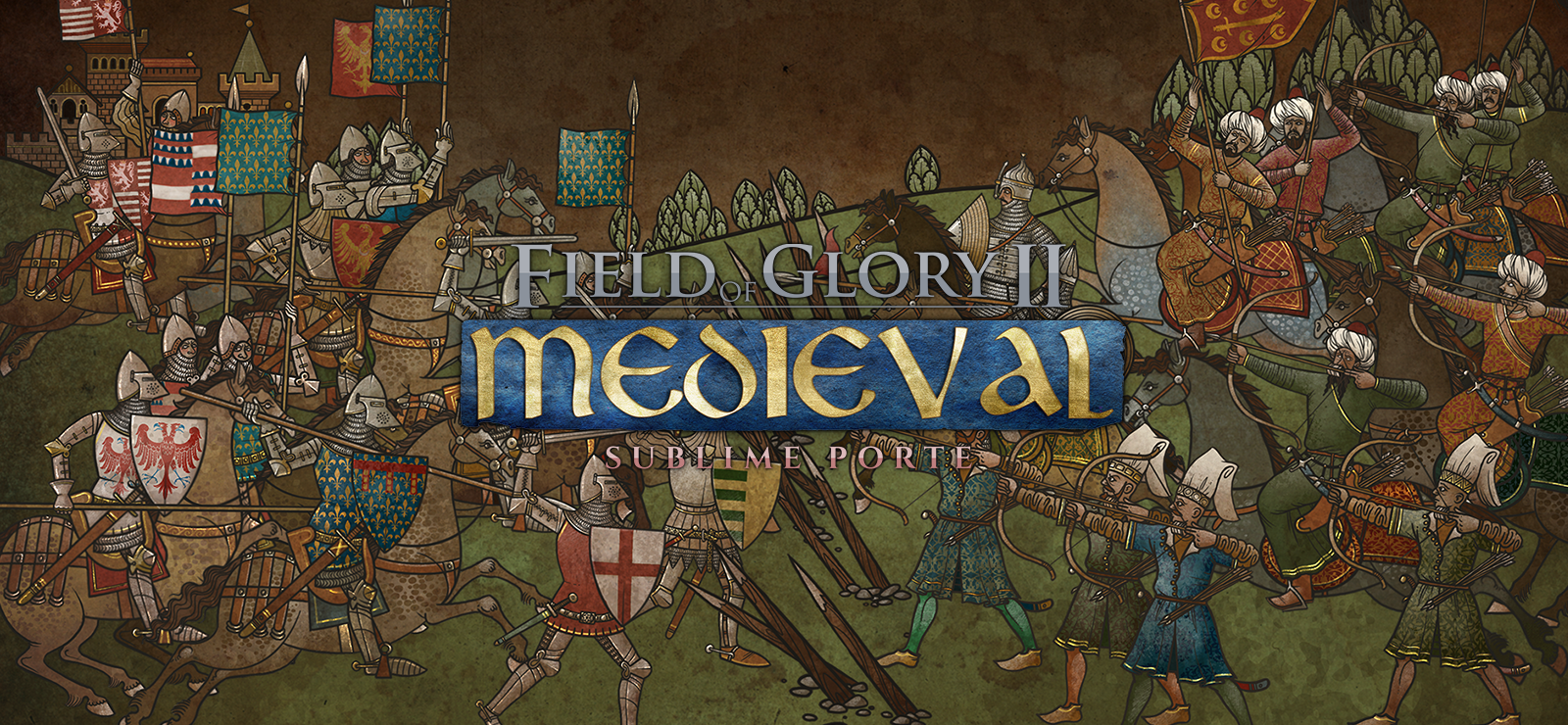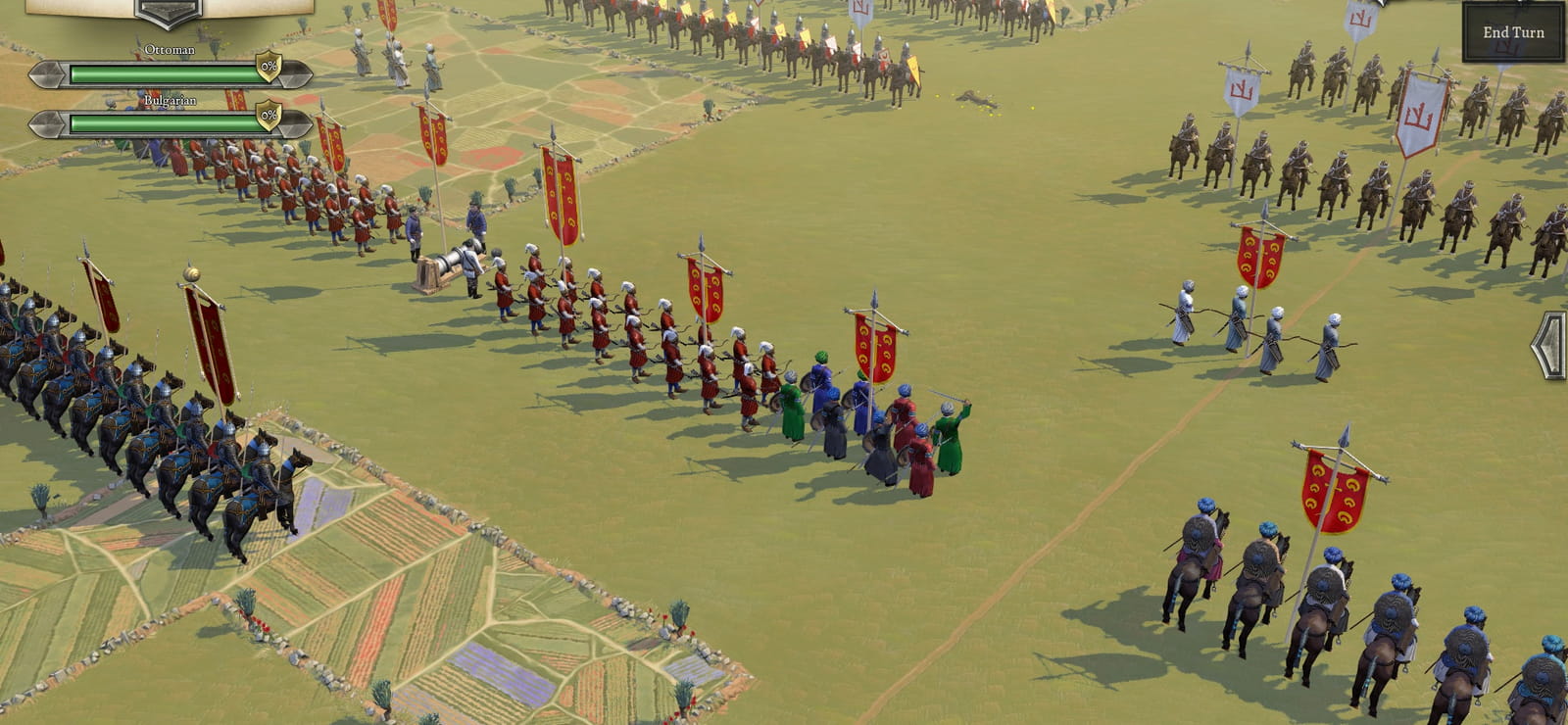Field Of Glory II: Medieval - Sublime Porte
About The The conquests resumed, and another Crusade was defeated at Varna in 1444. The Ottomans were generally victorious in these wars for the next fifty years, resulting in them becoming the dominant Balkan power
Thereafter the Company fought the Byzantines and their mercenary Alan allies in Thrace. The Catalan Company was formed from almughavar and other unemployed veterans of the War of the Sicilian Vespers in Sicily. This left the Company in control of the Duchy of Athens, which it ruled until 1388.Added in this DLC:Additional coverage for the following nations and factions from 1260 to 1500 AD: Albanians, Anatolian Turcomans, Black Sheep Turcomans, Bulgarians, Byzantines (Central, Epiros, Trebizond and Morea), Catalan Company, Chagatai Khanate, Kingdom of Cyprus, Georgians, Indians (Muslim, Rajput, Hindu and Vijayanagaran Empire), Islamic Persians, Jalayirid Sultanate, Latin Greece, Mamluk Egyptians, Moldavians, Navarrese Company, Order of St John, Ottoman Turks, Serbians, Timurids, Venetians, Wallachians and White Sheep Turcomans. Their advances led to the Battle of Nicopolis in 1396, where a western crusade met with disaster. In 1308, the Company moved to Greece, where in 1310 it entered the service of Gautier V de Brienne, Duke of Athens, and rapidly defeated his enemies. Despite the many victories of these men, however, by the end of the fifteenth century the Ottomans were the dominant power in the eastern Mediterranean. The conquests resumed, and another Crusade was defeated at Varna in 1444. In the east, most of Anatolia had been conquered from the other Turkic beyliks. Never defeated in battle, he won victories against the Golden Horde, the Delhi Sultanate, the Ottomans and the Mamluks, becoming the most powerful ruler in the Islamic world. 62 more army lists allowing historically realistic armies for each of the above factions and their allies at different dates during the period, and bringing the total number of Medieval army lists to 361. You will never run out of new matchups to try.o Albanian 1356-1430 AD o Albanian 1443-1478 AD o Anatolian Turcoman 1260-1379 AD o Anatolian Turcoman 1380-1500 AD o Black Sheep Turcoman 1350-1467 AD o Bulgarian 1320-1395 AD o Byzantine (Central) 1262-1399 AD o Byzantine (Epiros) 1262-1319 AD o Byzantine (Epiros) 1320-1359 AD o Byzantine (Morea) 1349-1460 AD o Byzantine (Trebizond) 1262-1359 AD o Byzantine (Trebizond) 1360-1399 AD o Byzantine (Trebizond) 1400-1461 In addition armies can include contingents from historical allies. Finally, the Turks conquered the great city of Constantinople in 1453, making it the Ottoman capital. This brought them into conflict with the other Balkan Christian states, including Serbia, Bulgaria, Hungary, Wallachia, Moldavia and Albania. This gives hundreds of thousands of permutations. He, however, failed to pay the agreed amount for their services, leading to his defeat and death at the Battle of Halmyros in 1311. His defeat of the Ottomans at Ankara in 1402 set back Ottoman expansion by several decades. One of these beyliks, bordering the Orthodox Christian Byzantine Empire, was led by Osman I. His empire fragmented soon after his death in 1405, but his great-great grandson Babur created the Mughal Empire in India - which was to last until 1857. At first the Ottomans battled against the Byzantines for control of the local Anatolian cities, but in 1354 they seized their first European territory when they took Gallipoli. At the end of the thirteenth century, with the Seljuk Sultanate of Rum in terminal decline, Anatolia was divided into several small independent Turkish principalities, called beyliks. Timur was born in 1336 into a noble family in the Turco-Mongol Barlas confederation in Transoxiana (in modern-day Uzbekistan). 22 new units. The Ottomans were generally victorious in these wars for the next fifty years, resulting in them becoming the dominant Balkan power. With Sultan Bayezid I captured, and dying in captivity the following year, the empire was thrown into a chaotic civil war between Bayezid’s sons, with order only being restored in 1413 when Mehmed I became Sultan. A number of brilliant Balkan leaders rose during the 15th century to challenge Ottoman hegemony; John Hunyadi and his son, Matthias Corvinus of Hungary, the Albanian hero Skanderbeg, Stephen the Great of Moldavia, and the Wallachian Voivode Vlad Țepeș 'The Impaler'. Over the next two years the Company was so successful against the Turks, and so rapacious in its treatment of Byzantine civilians, that the Byzantines became alarmed and had the Company’s leaders treacherously murdered. Osman's tiny state would gradually expand over the next two hundred years to become one of the world's great empires, known to posterity as the Ottoman (Osmanli) Empire, after their first leader. In 1302 the Company was hired by the Byzantine Emperor Andronikos II to combat the Anatolian Turkish beyliks. This run of success was briefly interrupted in 1402 when the Turco-Mongol conqueror Timur defeated the Ottomans at the Battle of Ankara. Rising to control Transoxiana by 1370, he went on to create the Timurid Empire in modern Central Asia, Afghanistan and Iran.
Field Of Glory II: Medieval - Sublime Porte
Specifications of Field Of Glory II: Medieval - Sublime Porte | |
|---|---|
| Category | Software > Video Game Software |
| Instock | instock |


